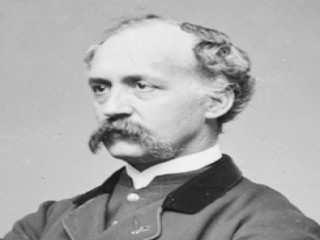
Henry Winter Davis biography
Date of birth : 1817-08-16
Date of death : 1865-12-30
Birthplace : Annapolis, Maryland, U.S.
Nationality : American
Category : Politics
Last modified : 2011-06-20
Credited as : Politician, United States Representative,
Henry Winter Davis was born Aug. 16, 1817, in Annapolis, Md. He attended Kenyon College, studied law at the University of Virginia, and in 1840 established practice in Alexandria, Va. In 1850 he moved to Baltimore, where he became active in Whig politics, absorbing much of the strong nationalist perspective of that party.
Alarmed by the influx of Catholic immigrants in the early 1850s, Davis joined the Whigs and Democrats in the nativist Know-Nothing movement. He was elected to Congress three times as a Know-Nothing between 1855 and 1859. In 1860, as the Know-Nothing movement declined, Davis cooperated with the Republican party in Congress but maintained a measure of political independence by supporting the former Whig John Bell, the Constitutional Union candidate, for president. Davis was defeated for reelection in 1861.
Maryland's secession from the Union appeared to be a real possibility in 1861. Davis took the lead in rallying the unionist forces there in the fight to keep the state loyal. His militant unionism and dislike for the Democrats and conservative Republicans made him increasingly sympathetic to the Radical Republicans' crusade to crush secession and the slave power. Reelected to Congress as an unconditional unionist in 1863, Davis cooperated with the Radicals in attacking Lincoln's moderate policies on slavery and his conciliatory attitude toward the South and in seeking to wrench the initiative in policy making away from the President in favor of Congress.
In 1863 Lincoln issued a relatively mild Reconstruction plan permitting 10 percent of a seceded state's voters as of 1860 to form a new state government once they took a loyalty oath to the Union. Angered by the plan's moderation and restoral of a status quo in the seceded states, Davis and Senator Benjamin Franklin Wade of Ohio introduced a counter proposal (Wade-Davis Bill, 1864) which politically proscribed many Confederate sympathizers, required immediate emancipation, compelled repudiation of the Confederate war debt, and insisted that a majority of loyal electors, rather than 10 percent, set up any new government. When Lincoln pocketvetoed the measure, the two congressmen issued the Wade-Davis Manifesto, bitterly castigating the President for his "rash and fatal act" in defying Congress and Radical policies. But despite some initial support, they had overreached themselves. Most Republicans drew back from such violent assaults on the President in an election year. Davis, swallowing his disgust, even worked for Lincoln's reelection rather than chance a Democratic victory.
Davis's always precarious political position in conservative Maryland was weakened by his opposition to the President, and he was not renominated in 1864. He remained active in the lame-duck session of Congress in 1864-1865 as a critic of the administration and an advocate of further radical proposals, including African American suffrage. In December 1865 he contracted pneumonia and died on the 30th in Baltimore.
















